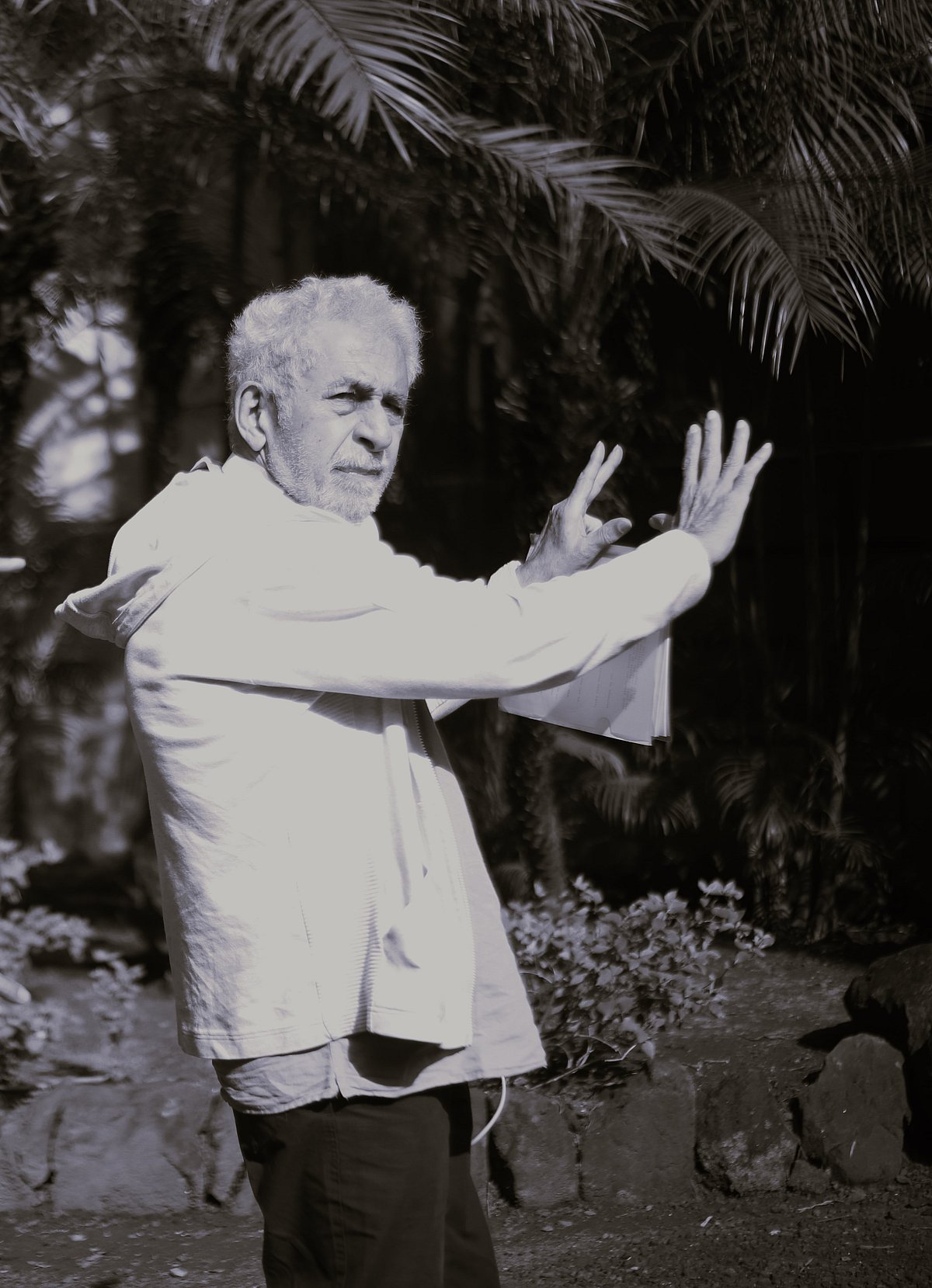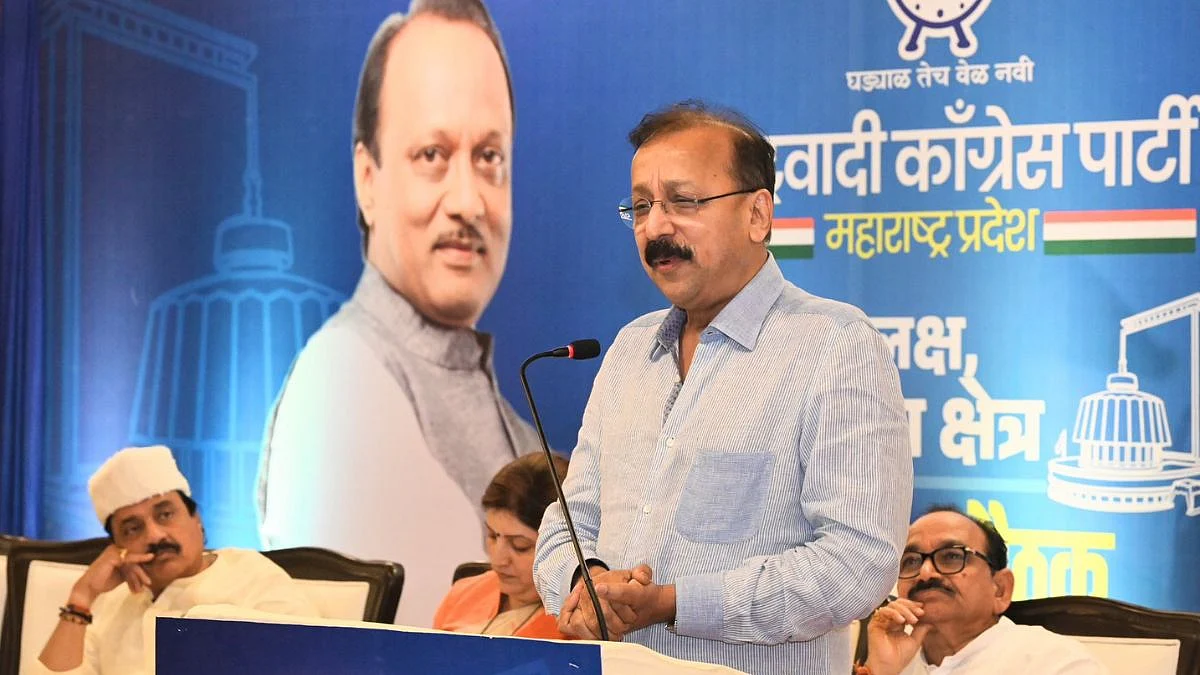While there are actors who speak the scripts by their publicists to play safe, there are a few like Naseeruddin Shah, who despite attracting immense hate for his aggressive but valid statements, chooses to speak what he feels is right. The actor-director is in news for his directorial venture Man Woman Man Woman, a short film presented by Royal Stag Barrel Select Large Short Films. The film stars his wife Ratna Pathak Shah as the protagonist. Naseeruddin Shah is back behind the camera after 17 years.
Excerpts from the interview:
What took you 17 years to make a come-back as a director?
I was recovering from the shock of having made such a bad film. It didn’t turn out the way I imagined it to be. I wasn’t technically equipped enough at that time - screenplay writing wise or film wise. I just thought if I assemble all the best actors, they will deliver. I thought it was a decent script. But later while editing it I realised there were some loopholes in the script, particularly in Irrfan Khan’s story. It was a big disappointment for me, except for the contribution of the actors. I take the responsibility of it all. I never thought I would make another film because it's hard work. It involves handling a lot of egos, schedules, and too many logistical problems.
How was it like working on the script and the process of filmmaking, especially since you have actors from home?
It’s a 25-minute film and I wrote the script and cast actors from home. I was extremely nervous when I made this film unlike my first film. That time I thought if I get actors to relax they will deliver their best performance and my job is done. But that was a big mistake. There are hell lot of other things that a director must look at. Directing Ratna (Pathak Shah) and Vivaan (Shah) wasn’t that difficult. This time I decided to concentrate more on structuring the film. I wrote this film for Ratna and the young man’s part for Vivaan. Saba was cast later because it occurred to me that she would be right for the role.
Ratnaji’s character is bold and very progressive. Is this character inspired from someone you know?
Yes, it is. The story is based on a couple of real-life incidents. There's a very dear friend of mine, who at the age of 65 met a gentleman on one of the online dating apps, who is a 70-year-old and a widower. They saw each other and liked each other. Fell in love and got married. I think that’s a beautiful thing. One of the happiest weddings I have ever been to. Some other friends forgot their box of jewellery in the cab when they were travelling to the registrar’s office for marriage and the cab driver came to return that jewellery box. That moment of anxiety must have been horrible for them, but we have created a fun moment out of that. The film is based on these two incidents. I fleshed out the characters and introduced a bit of a dilemma for all the four characters.


What events have contributed to your liberal ideas about women’s freedom and rights, considering you grew up in a very closed environment?
My mother was uneducated. She could only read and write Urdu. All she read was the Quran. I was 10 years old when I asked her ‘ammi which school did you go to’ and she said ‘arre beta hume to kisine school bheja hi na’ (no one sent me school). I was shocked. She was the second of 15 children to my Nani, who I believe until close to 35 years of age was doing nothing except having children. She was married when she was 14 and had first child at 15. My mother had six dynamic sisters. Had these ladies been educated they could have contributed in some way to the world. I grew up around many wonderful women who weren’t exposed to the outside world. I think that must have created in me the animosity and resentment against this system of keeping women in purdah. The Quran makes no such mention of Burqa. The Quran speaks about Purdah of eyes. Purdah doesn’t mean covering the woman and turning her into a shapeless lump so that nobody looks at her. Purdah of the eye means don’t look where you are not supposed to look. That’s why I was terribly enraged when these mullahs would criticise Sania Mirza wearing a skirt while playing tennis. Why are you looking at her skirt? That means you are guilty and you are a dirty mind and you accuse others of not sticking to their faith. I guess that’s what created my liberal attitude. I had resolved that if I had daughters, which I have, Saba, I would never subject her to this kind of upbringing.
Over the years, do you think the objective of filmmaking has changed in Bollywood?
Yes! Now the more jingoist you are the more popular you become, because this is what has been ruling this country. It’s not enough to love your country but beat drums about it and you have to create imaginary enemies. What these people don’t realise is that what they are doing is very harmful. In fact, films like Kerala Story and Gadar 2, I haven’t seen them but I know what they are about, it’s disturbing that films like Kashmir Files are so massively popular whereas films made by Sudhir Mishra, Anubhav Sinha, and Hansal Mehta, who are trying to portray the truth of their times don’t get seen. But it’s important that these filmmakers don’t lose heart and continue telling stories. They will be responsible for posterity. Hundred years later people will see Bheed and they will also see Gadar 2 and see which one portrays the truth of our times because film is the only medium which could do that. It’s hard to resort to abstraction and capture life as it is. So regressive is a pretty mild word for what’s going on, it’s frightening where filmmakers are being coopted into making films which praise all the wrong things and run down other communities for no reason at all. It’s a dangerous trend.
You never mince your words, which we seldom see a celebrity do.
I have never much cared about others' opinion of me. Right from my childhood I have never given much importance to it. From the age of 14 I knew what I wanted to do. I am very fortunate that I am spending my life doing work that I love. I am enjoying it thoroughly and getting paid for it (laughs) for which I will be willing to pay to let me do. I don’t see why one mustn’t be forthright. As the French playwright Molière says ‘Hypocrisy is the greatest virtue because nobody can accuse you of lying. You can always hide behind this veneer of goodness and do all the dirt in the world’. I believe keeping silent is a prudent silent assent. It’s important to say what one really feels. The right wingers are also saying what they feel to say, and they are free to say, why should I be afraid.

Apart from work, you are also admired for your relationship with Ratnaji. More than a couple you two appear as solid friends.
You hit the nail on the head. We are strong friends. We met in 1975 and the moment I saw her I felt like I wanted to be friends with this girl. She was in college, and I was a struggling actor who had no money, no future. I used to fudge meals at her house and there I discovered that vegetarian meals can be delicious. Gradually we realised it’s a good idea to spend our lives together. She has been my source of strength. She has supported me in everything I have done. She had accepted me at a time when I had no future, no prospect. Everything was gloomy and I was in a shack with four other people. She had faith in me, and I felt that at least there’s one person who believes in me. My parents didn’t. My mother couldn’t understand what I was up to in my life. But she supported me unconditionally and said do whatever you like but do it well. The way Ratna made friends with my mother, the way my mother dotted on her was incredible. I realised that this is a jewel that I have found and if I let go of her, I would be very foolish. I have been very very careful not to let anything come in the way and she has been my pillar of support and she has been the most encouraging friend. We still joke about things and chat on any subject. There are many things about her that I admire deeply. She is the man of the house.
What do you think of love in a relationship?
Love, I think, is not a thunderbolt that suddenly happens one day. It’s a combination of factors. Love takes time to grow, mature and flower. It’s not a cloud which breaks into rain the moment you say I love you. It depends on what you do with each other and for each other.
Looking back at seven decades of your journey as an individual, how have you evolved?
I have become less stringent and less angry at the world. There was a time when I was furious at the world because I wasn’t a good student at school. I wasn’t good at anything. I was never given a chance to act in school plays. So, there was a great deal of fury in the world — 'I will show the world' kind of attitude, which withered away gradually when I made friends. I have become more patient. I have realised that anger is like an addiction. I have decided to be a little more rational about my anger particularly since we had children because anger is only destructive. I have become more tolerant of most things except Hindi cinema (laughs). I think I have matured a bit as an individual. As an actor, naturally, they get better as they get older. It’s unfortunate that as they get older their opportunities diminish. It hasn’t been in my case. I have been getting more interesting parts than I got in my youth. If I don’t, I am making those opportunities for myself. I have realised that it’s an actor’s job to communicate what the writer and director wants to communicate, not to show off your abilities so that I can laugh, shout and all that. That’s not what an actor’s job is. He has to do all those things in order to convey the text. This is the realisation that has happened over the years.











